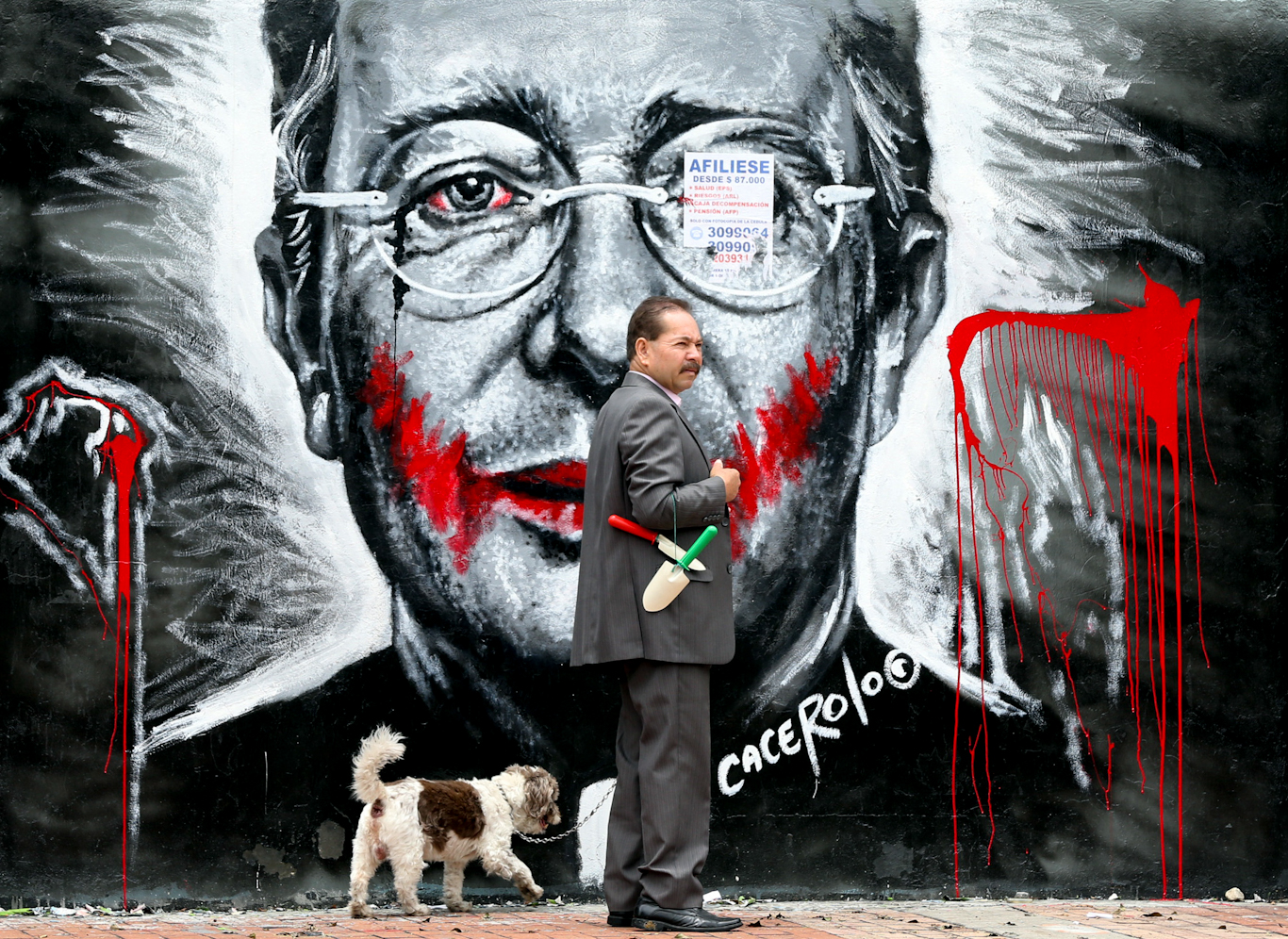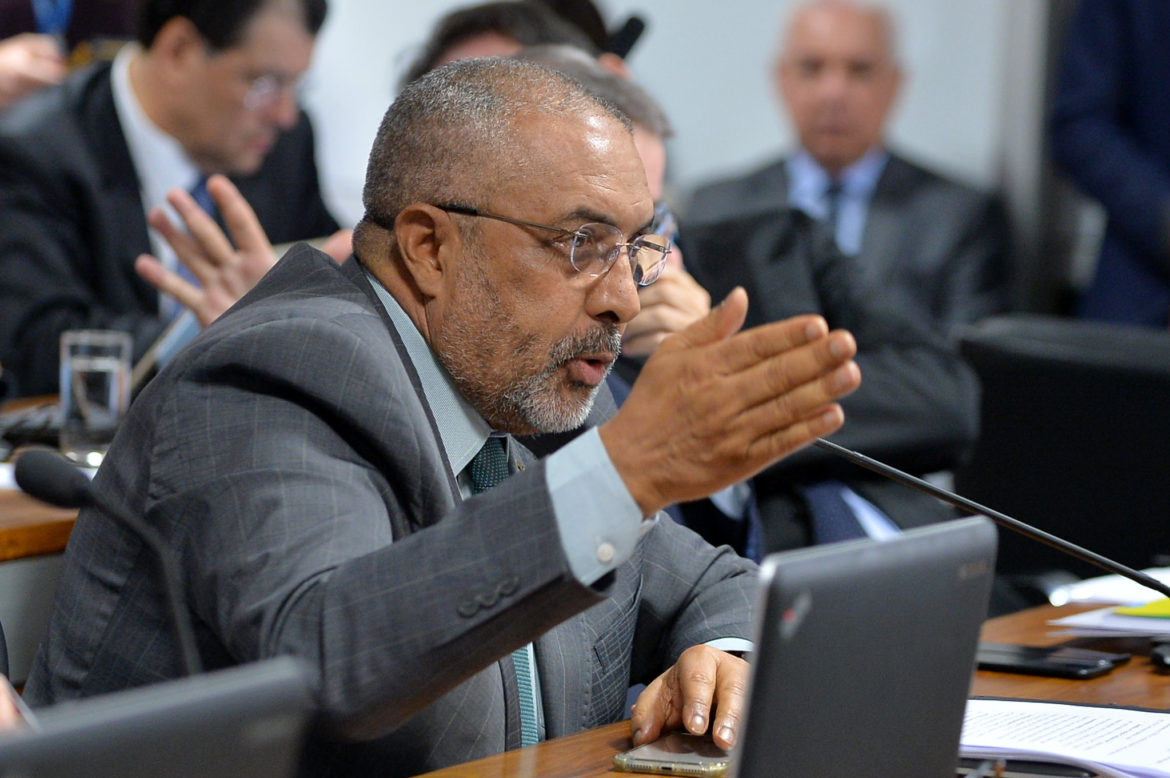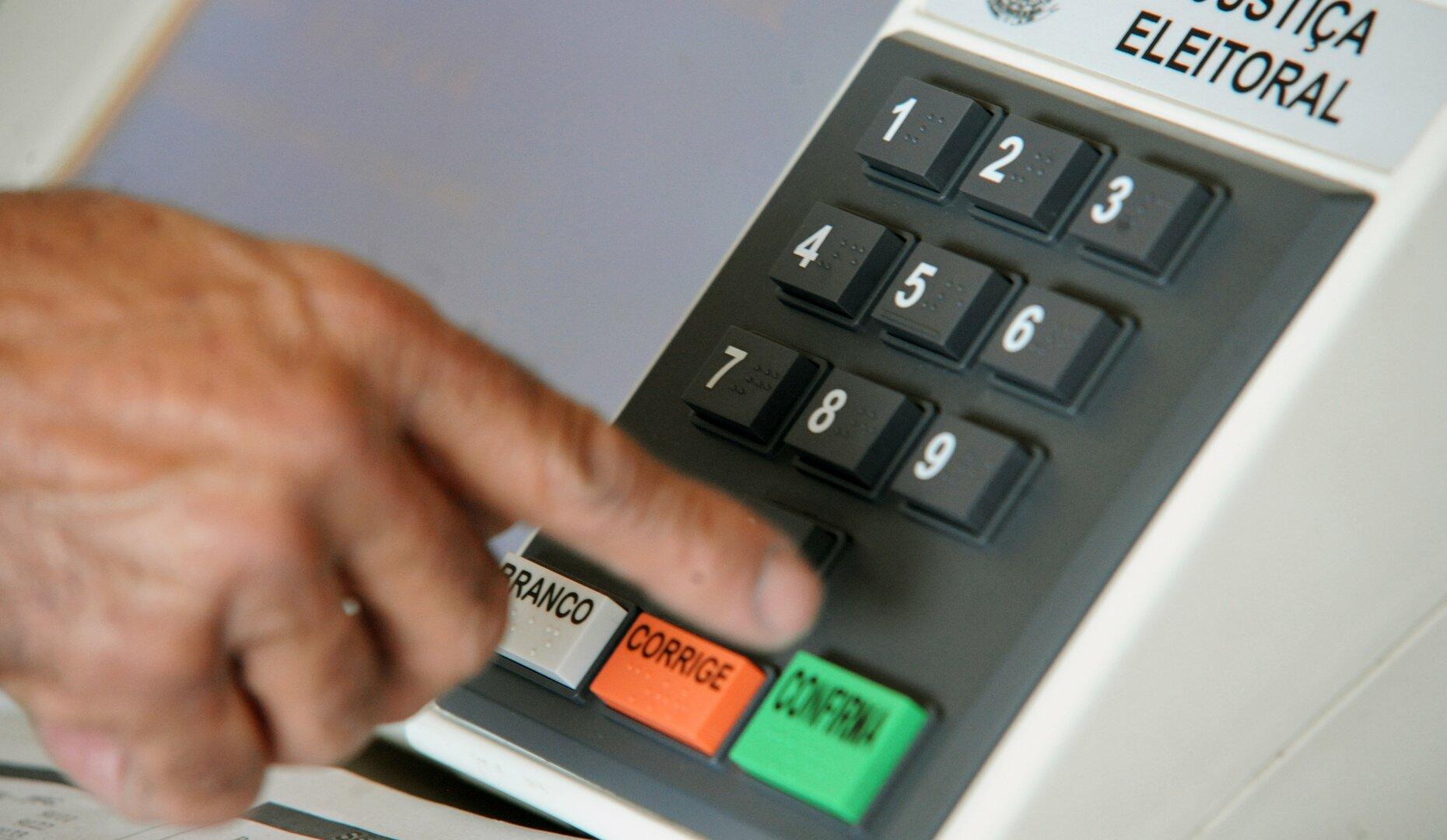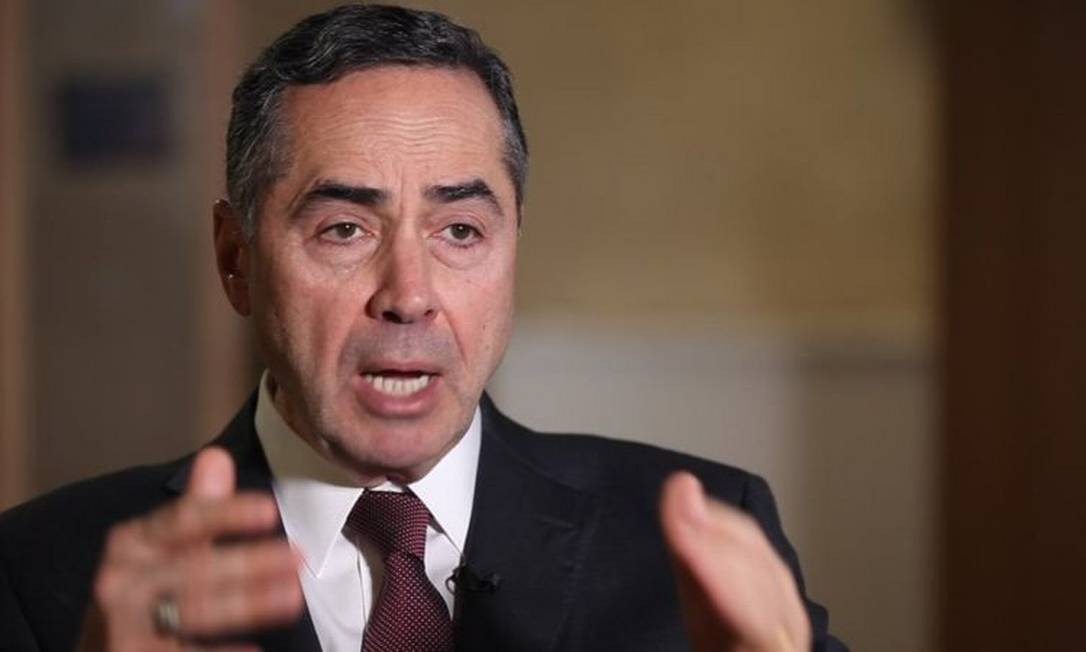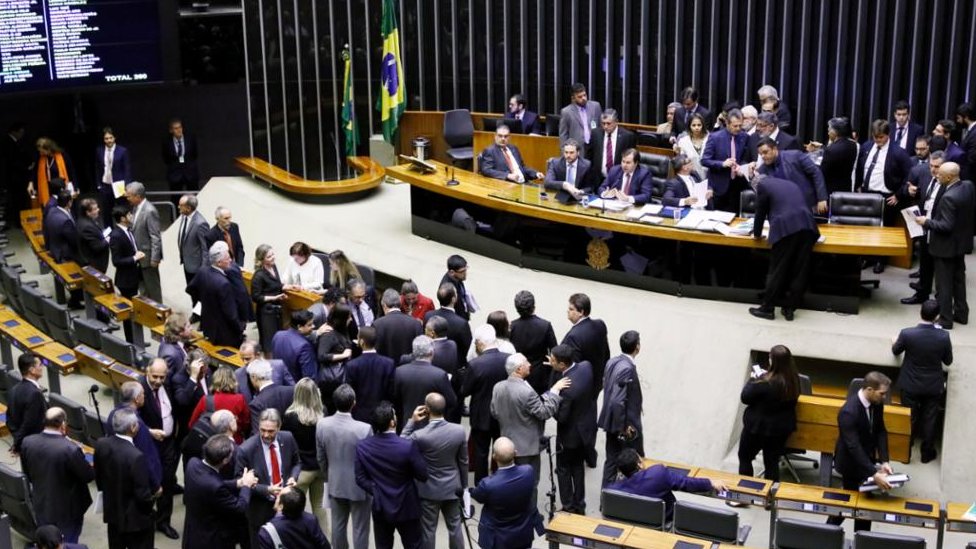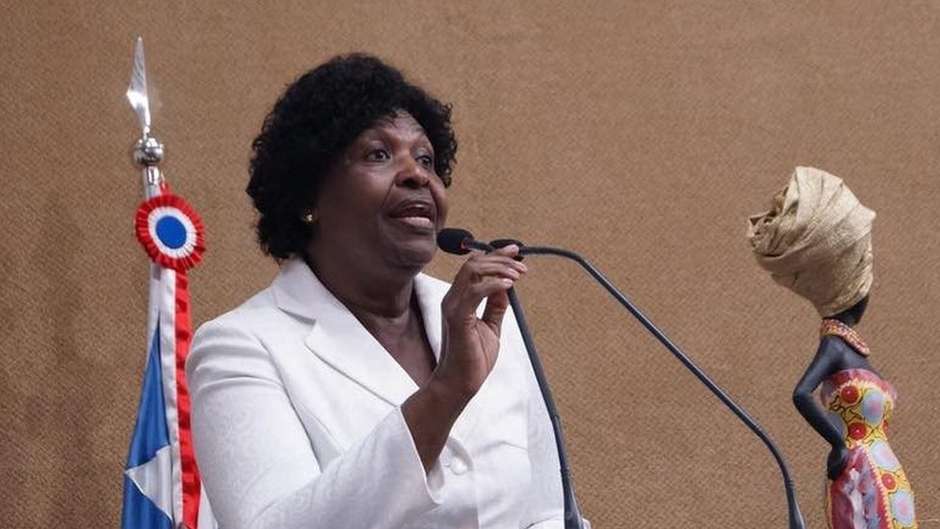Decades Later, America’s Meddling in Colombia is Still Costing Lives
From the drug war to Plan Colombia to support for right-wing paramilitary groups, decades of US interference in Colombia has caused so much instability that to this day, the country is still reeling from it.
August 28th, 2020 by Alan Macleod
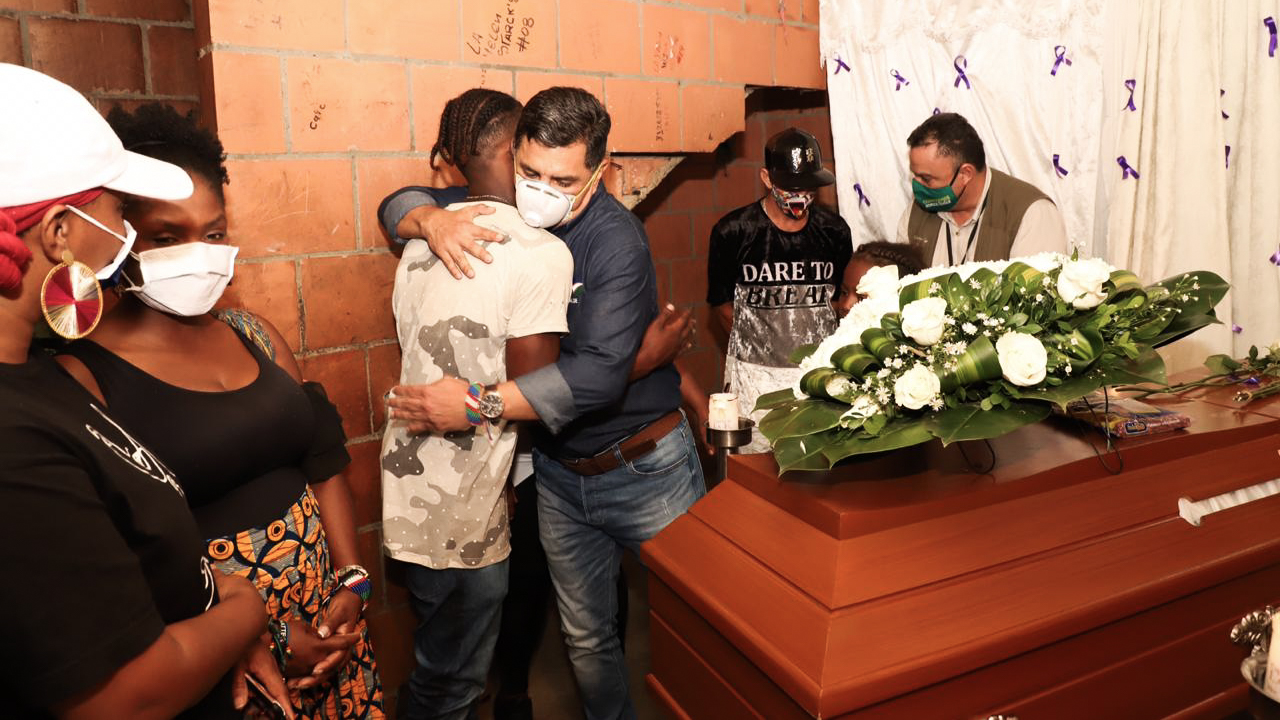
Jorge Ivan Ospina, the Mayor of Cali, visits the crime scene where the bodies of five young men were found earlier this month. Photo | Twitter via Jorge Ivan Ospina
On a warm Tuesday morning earlier this month in Llano Verde, an eastern suburb of the city of Cali, five Afro-Colombian children decided to leave their homes to take advantage of the fine weather to spend some time outside. They would never return. Only a few hours later, they were found dead; their bodies burned, cut to pieces with machetes and riddled with bullets, dumped in public for all to see.
The residents of Llano Verde are no strangers to violence; the majority of them are refugees, displaced from the fighting in Colombia’s civil war. The local press reported that the boys, Luis Fernando Montaño, Josmar Jean Paul Cruz Perlaza, Álvaro Jose Caicedo Silva, Jair Andrés Cortes Castro, and Leider Cárdenas Hurtado, were members of the vibrant local art scene and had gone to fly kites — such an innocent activity in a land of the guilty.
A violent history
The incident has shocked the people of Cali, but not surprised them. Last week alone there were five massacres across the country. Cali is not even the most recent one; on Tuesday, the bodies of three young men were found on a roadside in Ocaña, a city near the Venezuelan border. That was the country’s 46th massacre in 2020 to date, according to local human rights group Indepez, who notes that 185 people have been killed this year — more than one person per day.
“Every massacre is a message,” said Manuel Rozental, a physician and longtime activist living in Cauca, in the country’s southwest. “Young, indigenous, Afro-Colombians are being murdered en masse in different regions of the country…The massacres are methodic, systematic. It is a job being done as planned,” he told MintPress.
James Jordan, the National Co-Coordinator of the Alliance for Global Justice, appeared to agree, stating that “we have been watching with alarm as enemies of peace in Colombia have continued to escalate threats and assaults against human rights defenders, social movement leaders, and ex-insurgents participating in the peace process. Also targeted have been their family members, including, in some cases, children and even infants. As always, the most affected by political violence are rural farming, indigenous, and Afro-Colombian communities.”
The government, led by President Ivan Duque, blamed leftist rebel groups for the killings, particularly the FARC. The majority of the latest massacres have indeed occurred in rural areas controlled by the rebels until the historic 2016 peace accords, where the FARC agreed to demobilize and enter the political arena instead. Yet the experts MintPress spoke to were skeptical of Duque’s claims. “Who in Colombia, after the FARC dismantled has the capacity to locate, threaten and murder social leaders and now proceed with massacres with such precision? The answer is obvious, there has to be military intelligence involved,” said Rozental. Certainly, throughout Colombia’s recent history, the majority of atrocities have been carried out by government-linked paramilitaries, who have enjoyed virtually free rein to impose their will on the country.
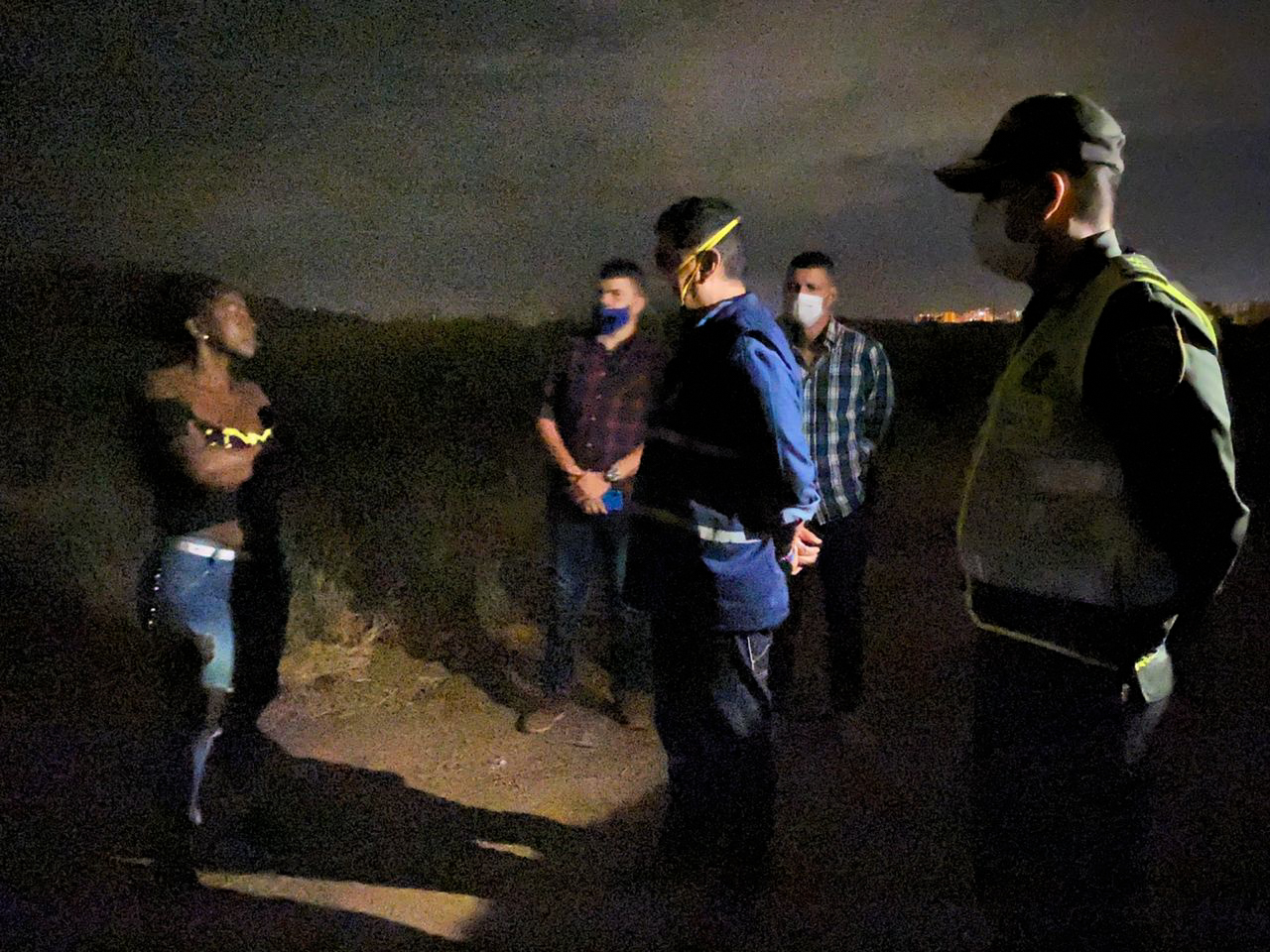
Jorge Ivan Ospina, the Mayor of Cali, visits the crime scene where the bodies of five young men were found. Photo | Twitter via Jorge Ivan Ospina
Duque visited Cali on Saturday, and ordered national police chief General Oscar Atehortua to take charge of the investigation, and instructed his forces to be “relentless” in their pursuit of justice, aggressive language which worried many he was trying to calm. At the same time, he has attempted to downplay the recent upsurge in violence, describing the massacres as merely “collective homicides.” Today, the government announced it had arrested two suspects, although their affiliations, let alone their guilt, are still unclear at this point.
Professor Mario A. Murillo of Hofstra University, author of “Colombia and the United States: War, Terrorism and Destabilization,” was profoundly agnostic about the perpetrators of the violence, but believes the broader situation stems from failures in government. “The recent wave of massacres hitting predominantly rural communities in Colombia, at first glance, appears to be part of a random lawlessness which authorities are deliberately finding difficulty in attributing responsibility to, but is actually the direct result of the failures of the current government to fully implement the 2016 peace agreement signed with FARC rebels by the previous administration,” he said.
“The bottom line is if President Duque had not taken the lead from the right-wing base of his Democratic Center Party in dismantling every important provision of the peace accord — from land reform to justice for the victims of the decades-long war, from sustainable rural development, to guarantees for social movements and demobilized guerillas in a post-conflict Colombia — the country would not be reliving this kind of terror, reminiscent of the horrors of the late 1990s and early 2000s.”
Don’t vote for Petro
Ivan Duque came to power in 2018 in a hotly contested and highly questionable election that pitted him against former leftist guerilla Gustavo Petro. This was the first time that the left appeared to have a shot at power since the assassination of presidential candidate Jorge Gaitan in 1948, an event that sparked decades of civil war. Right-wing paramilitary death squads sprung into action, announcing generalized death threats against those who attempted to vote for Petro. Petro himself narrowly survived an assassination attempt in the run-up to the election. Some of his supporters were less lucky. American human rights lawyer Daniel Kovalik, an election observer, said he was mistaken for a voter and offered money to vote for Duque. There were over 1,000 official electoral fraud complaints. Jordan explained to MintPress his experiences with the questionable vote
“During the Summer of 2018, we took an election observation team to Colombia. That election season was, historically, the first in which former insurgents from the FARC participated as a legal political party after laying down arms. It was also marked by organized threats and assaults by paramilitary actors against left and center-left campaigns, and against various popular movements. And it was marked by massive electoral fraud and irregularities, some of which our teams witnessed directly.”
Plan Colombia
Duque is the protege of the strongly conservative president Alvaro Uribe, who ruled the country between 2002 and 2010. Uribe worked closely with the United States government to implement the Bush administration’s “Plan Colombia,” a massive push to militarize the drug war, leading to huge death and destruction in the nation’s countryside and resulting in widespread social dislocation and upheaval. However, many observers saw Washington’s move as a veiled attempt to ply a favored government with weapons so they could defeat Colombia’s leftist rebels once and for all. Of note is that Uribe himself was named as an important player in the narco-trafficking trade in a 1991 U.S. government document.
Largely unknown outside the country, Colombia’s civil war, which began in 1964 and has never fully stopped, has caused massive social upheaval, including some 7.4 million currently displaced people, according to the United Nations. By comparison, the conflict in Syria generated 6.2 million displacements. Afro-Colombians were particularly hard hit.
Uribe also oversaw a years-long series of extrajudicial murders and massacres that resulted in over 10,000 deaths. Dubbed the “False Positives Scandal,” government forces would murder anyone they wished, later claiming their victims were members of the FARC. This allowed Uribe to impose his rule on the country, intimidating opponents into silence. Colombia became, according to Amnesty International, the “most dangerous place in the world to be a trade unionist,” with more unionist murders occurring inside the country than in all others combined.
Even today, right-wing paramilitaries linked to the government have been using the COVID-19 lockdown to go after activists, with more than 100 murdered in the first half of 2020 alone. “Our enemies are still killing us and it’s not difficult for them during the pandemic because we are all at home, complying with the mandatory quarantine which means nobody can move,” one Afro-Colombian activist wrote for Amnesty. “Being at home 24 hours a day is a death sentence because the gunmen know where to find us.”
Rozental was of the opinion that drugs, violence and the state were all fundamentally intertwined in Colombia, telling MintPress,
“The relationship with drug trafficking and cartels…no-one can ignore or deny the evidence and the knowledge of the fact that the Colombian state, at the highest level, the Armed Forces, the judicial system and the congress are all involved in drug trafficking mafias and the business of drug trafficking. The personification of this is Alvaro Uribe.”
Yet this is largely ignored in the West, with corporate media often presenting the country as an emerging democracy, and Uribe as a beloved statesman, with some even describing him as the “savior” of a nation and a “beacon of hope” for the world.
Uribe’s past may have finally caught up to him, however, as the former president was charged and placed under house arrest earlier this month for allegedly attempting to bribe a witness in a case involving members of a paramilitary group. He also stands accused of being a founding member of a right-wing death squad. He faces up to eight years in prison if convicted. Could it be the man who was once considered untouchable is about to feel the wrath of the state he helped build?
Murillo believed that there could be a connection between his arrest and the explosion of violence in the past few weeks, saying:
“It is most likely not a coincidence that this current wave of massacres, which were part of daily life in Colombia when Duque’s benefactor, former President Alvaro Uribe, took the reigns of power in 2002, are occurring just as Uribe sits through house arrest, facing justice for his involvement in witness tampering and paramilitary activity. Are they designed as a distraction? Or worse yet, retribution for Uribe’s detention? Unfortunately, in Colombia, we will most likely never get to the bottom of it.”
From the drug war to Plan Colombia to support for right-wing paramilitary groups, decades of US interference in Colombia has caused so much instability that to this day, the country is still reeling from it.
August 28th, 2020 by Alan Macleod

Jorge Ivan Ospina, the Mayor of Cali, visits the crime scene where the bodies of five young men were found earlier this month. Photo | Twitter via Jorge Ivan Ospina
On a warm Tuesday morning earlier this month in Llano Verde, an eastern suburb of the city of Cali, five Afro-Colombian children decided to leave their homes to take advantage of the fine weather to spend some time outside. They would never return. Only a few hours later, they were found dead; their bodies burned, cut to pieces with machetes and riddled with bullets, dumped in public for all to see.
The residents of Llano Verde are no strangers to violence; the majority of them are refugees, displaced from the fighting in Colombia’s civil war. The local press reported that the boys, Luis Fernando Montaño, Josmar Jean Paul Cruz Perlaza, Álvaro Jose Caicedo Silva, Jair Andrés Cortes Castro, and Leider Cárdenas Hurtado, were members of the vibrant local art scene and had gone to fly kites — such an innocent activity in a land of the guilty.
A violent history
The incident has shocked the people of Cali, but not surprised them. Last week alone there were five massacres across the country. Cali is not even the most recent one; on Tuesday, the bodies of three young men were found on a roadside in Ocaña, a city near the Venezuelan border. That was the country’s 46th massacre in 2020 to date, according to local human rights group Indepez, who notes that 185 people have been killed this year — more than one person per day.
“Every massacre is a message,” said Manuel Rozental, a physician and longtime activist living in Cauca, in the country’s southwest. “Young, indigenous, Afro-Colombians are being murdered en masse in different regions of the country…The massacres are methodic, systematic. It is a job being done as planned,” he told MintPress.
James Jordan, the National Co-Coordinator of the Alliance for Global Justice, appeared to agree, stating that “we have been watching with alarm as enemies of peace in Colombia have continued to escalate threats and assaults against human rights defenders, social movement leaders, and ex-insurgents participating in the peace process. Also targeted have been their family members, including, in some cases, children and even infants. As always, the most affected by political violence are rural farming, indigenous, and Afro-Colombian communities.”
The government, led by President Ivan Duque, blamed leftist rebel groups for the killings, particularly the FARC. The majority of the latest massacres have indeed occurred in rural areas controlled by the rebels until the historic 2016 peace accords, where the FARC agreed to demobilize and enter the political arena instead. Yet the experts MintPress spoke to were skeptical of Duque’s claims. “Who in Colombia, after the FARC dismantled has the capacity to locate, threaten and murder social leaders and now proceed with massacres with such precision? The answer is obvious, there has to be military intelligence involved,” said Rozental. Certainly, throughout Colombia’s recent history, the majority of atrocities have been carried out by government-linked paramilitaries, who have enjoyed virtually free rein to impose their will on the country.

Jorge Ivan Ospina, the Mayor of Cali, visits the crime scene where the bodies of five young men were found. Photo | Twitter via Jorge Ivan Ospina
Duque visited Cali on Saturday, and ordered national police chief General Oscar Atehortua to take charge of the investigation, and instructed his forces to be “relentless” in their pursuit of justice, aggressive language which worried many he was trying to calm. At the same time, he has attempted to downplay the recent upsurge in violence, describing the massacres as merely “collective homicides.” Today, the government announced it had arrested two suspects, although their affiliations, let alone their guilt, are still unclear at this point.
Professor Mario A. Murillo of Hofstra University, author of “Colombia and the United States: War, Terrorism and Destabilization,” was profoundly agnostic about the perpetrators of the violence, but believes the broader situation stems from failures in government. “The recent wave of massacres hitting predominantly rural communities in Colombia, at first glance, appears to be part of a random lawlessness which authorities are deliberately finding difficulty in attributing responsibility to, but is actually the direct result of the failures of the current government to fully implement the 2016 peace agreement signed with FARC rebels by the previous administration,” he said.
“The bottom line is if President Duque had not taken the lead from the right-wing base of his Democratic Center Party in dismantling every important provision of the peace accord — from land reform to justice for the victims of the decades-long war, from sustainable rural development, to guarantees for social movements and demobilized guerillas in a post-conflict Colombia — the country would not be reliving this kind of terror, reminiscent of the horrors of the late 1990s and early 2000s.”
Don’t vote for Petro
Ivan Duque came to power in 2018 in a hotly contested and highly questionable election that pitted him against former leftist guerilla Gustavo Petro. This was the first time that the left appeared to have a shot at power since the assassination of presidential candidate Jorge Gaitan in 1948, an event that sparked decades of civil war. Right-wing paramilitary death squads sprung into action, announcing generalized death threats against those who attempted to vote for Petro. Petro himself narrowly survived an assassination attempt in the run-up to the election. Some of his supporters were less lucky. American human rights lawyer Daniel Kovalik, an election observer, said he was mistaken for a voter and offered money to vote for Duque. There were over 1,000 official electoral fraud complaints. Jordan explained to MintPress his experiences with the questionable vote
“During the Summer of 2018, we took an election observation team to Colombia. That election season was, historically, the first in which former insurgents from the FARC participated as a legal political party after laying down arms. It was also marked by organized threats and assaults by paramilitary actors against left and center-left campaigns, and against various popular movements. And it was marked by massive electoral fraud and irregularities, some of which our teams witnessed directly.”
Plan Colombia
Duque is the protege of the strongly conservative president Alvaro Uribe, who ruled the country between 2002 and 2010. Uribe worked closely with the United States government to implement the Bush administration’s “Plan Colombia,” a massive push to militarize the drug war, leading to huge death and destruction in the nation’s countryside and resulting in widespread social dislocation and upheaval. However, many observers saw Washington’s move as a veiled attempt to ply a favored government with weapons so they could defeat Colombia’s leftist rebels once and for all. Of note is that Uribe himself was named as an important player in the narco-trafficking trade in a 1991 U.S. government document.
Largely unknown outside the country, Colombia’s civil war, which began in 1964 and has never fully stopped, has caused massive social upheaval, including some 7.4 million currently displaced people, according to the United Nations. By comparison, the conflict in Syria generated 6.2 million displacements. Afro-Colombians were particularly hard hit.
Uribe also oversaw a years-long series of extrajudicial murders and massacres that resulted in over 10,000 deaths. Dubbed the “False Positives Scandal,” government forces would murder anyone they wished, later claiming their victims were members of the FARC. This allowed Uribe to impose his rule on the country, intimidating opponents into silence. Colombia became, according to Amnesty International, the “most dangerous place in the world to be a trade unionist,” with more unionist murders occurring inside the country than in all others combined.
Even today, right-wing paramilitaries linked to the government have been using the COVID-19 lockdown to go after activists, with more than 100 murdered in the first half of 2020 alone. “Our enemies are still killing us and it’s not difficult for them during the pandemic because we are all at home, complying with the mandatory quarantine which means nobody can move,” one Afro-Colombian activist wrote for Amnesty. “Being at home 24 hours a day is a death sentence because the gunmen know where to find us.”
Rozental was of the opinion that drugs, violence and the state were all fundamentally intertwined in Colombia, telling MintPress,
“The relationship with drug trafficking and cartels…no-one can ignore or deny the evidence and the knowledge of the fact that the Colombian state, at the highest level, the Armed Forces, the judicial system and the congress are all involved in drug trafficking mafias and the business of drug trafficking. The personification of this is Alvaro Uribe.”
Yet this is largely ignored in the West, with corporate media often presenting the country as an emerging democracy, and Uribe as a beloved statesman, with some even describing him as the “savior” of a nation and a “beacon of hope” for the world.
Uribe’s past may have finally caught up to him, however, as the former president was charged and placed under house arrest earlier this month for allegedly attempting to bribe a witness in a case involving members of a paramilitary group. He also stands accused of being a founding member of a right-wing death squad. He faces up to eight years in prison if convicted. Could it be the man who was once considered untouchable is about to feel the wrath of the state he helped build?
Murillo believed that there could be a connection between his arrest and the explosion of violence in the past few weeks, saying:
“It is most likely not a coincidence that this current wave of massacres, which were part of daily life in Colombia when Duque’s benefactor, former President Alvaro Uribe, took the reigns of power in 2002, are occurring just as Uribe sits through house arrest, facing justice for his involvement in witness tampering and paramilitary activity. Are they designed as a distraction? Or worse yet, retribution for Uribe’s detention? Unfortunately, in Colombia, we will most likely never get to the bottom of it.”
